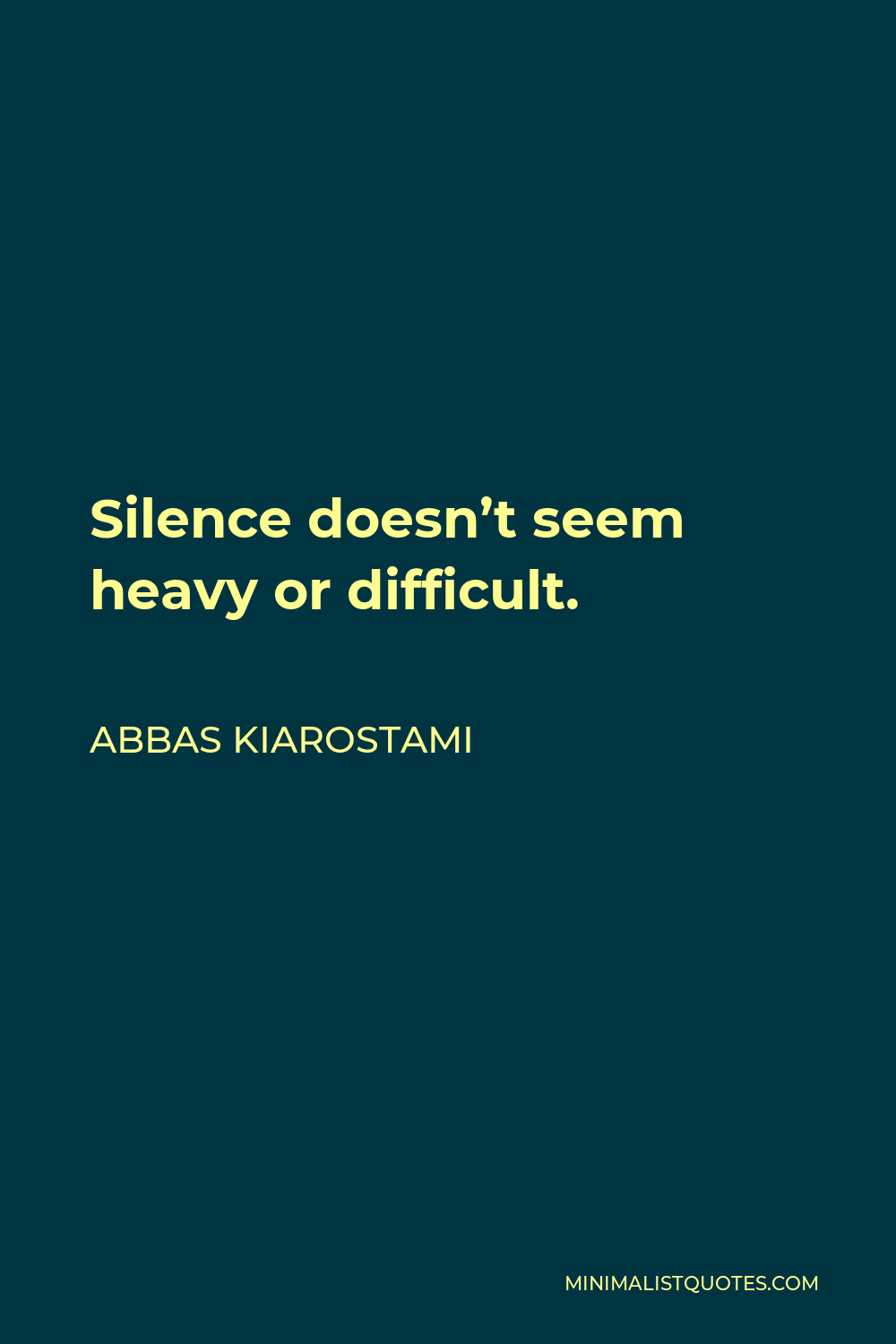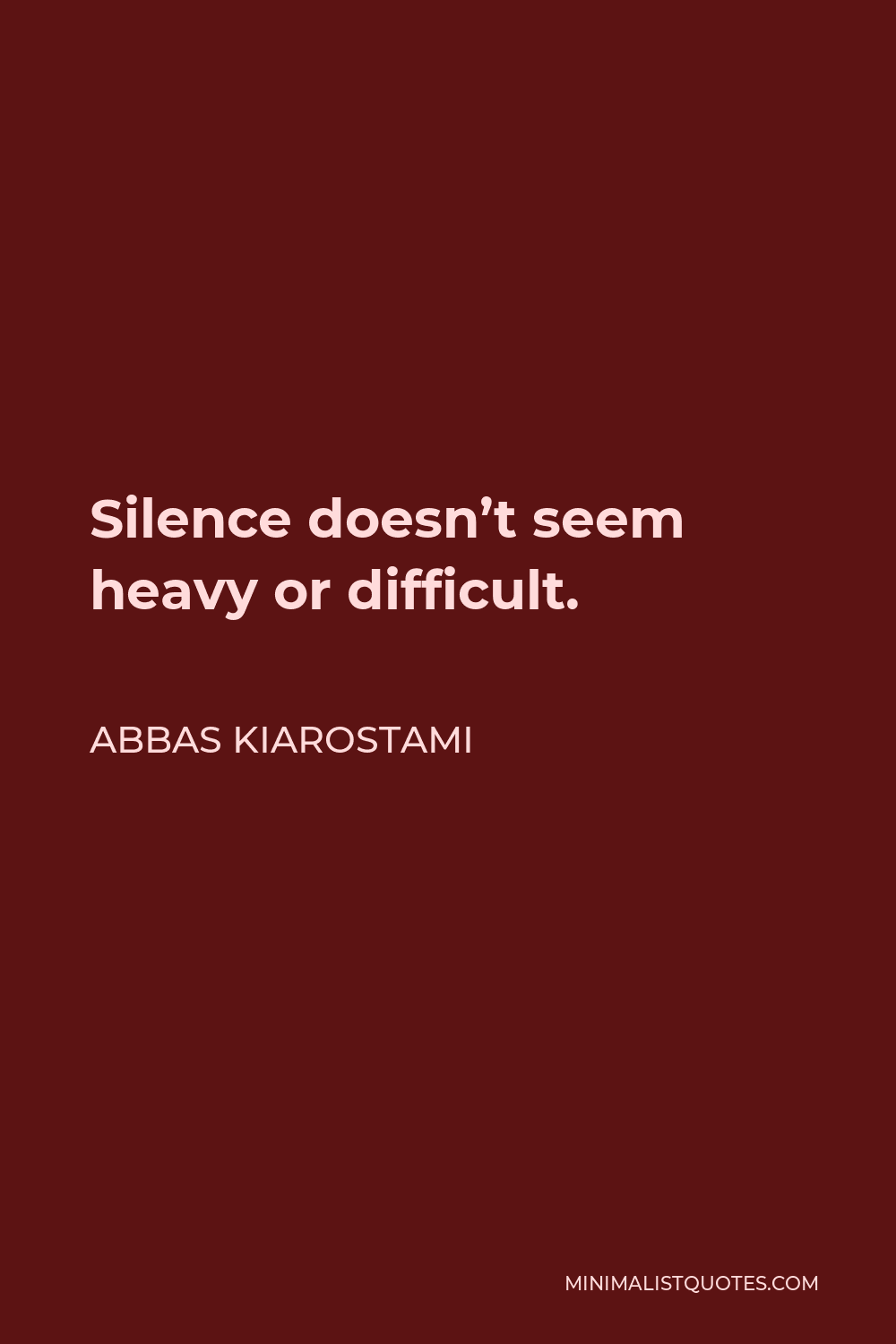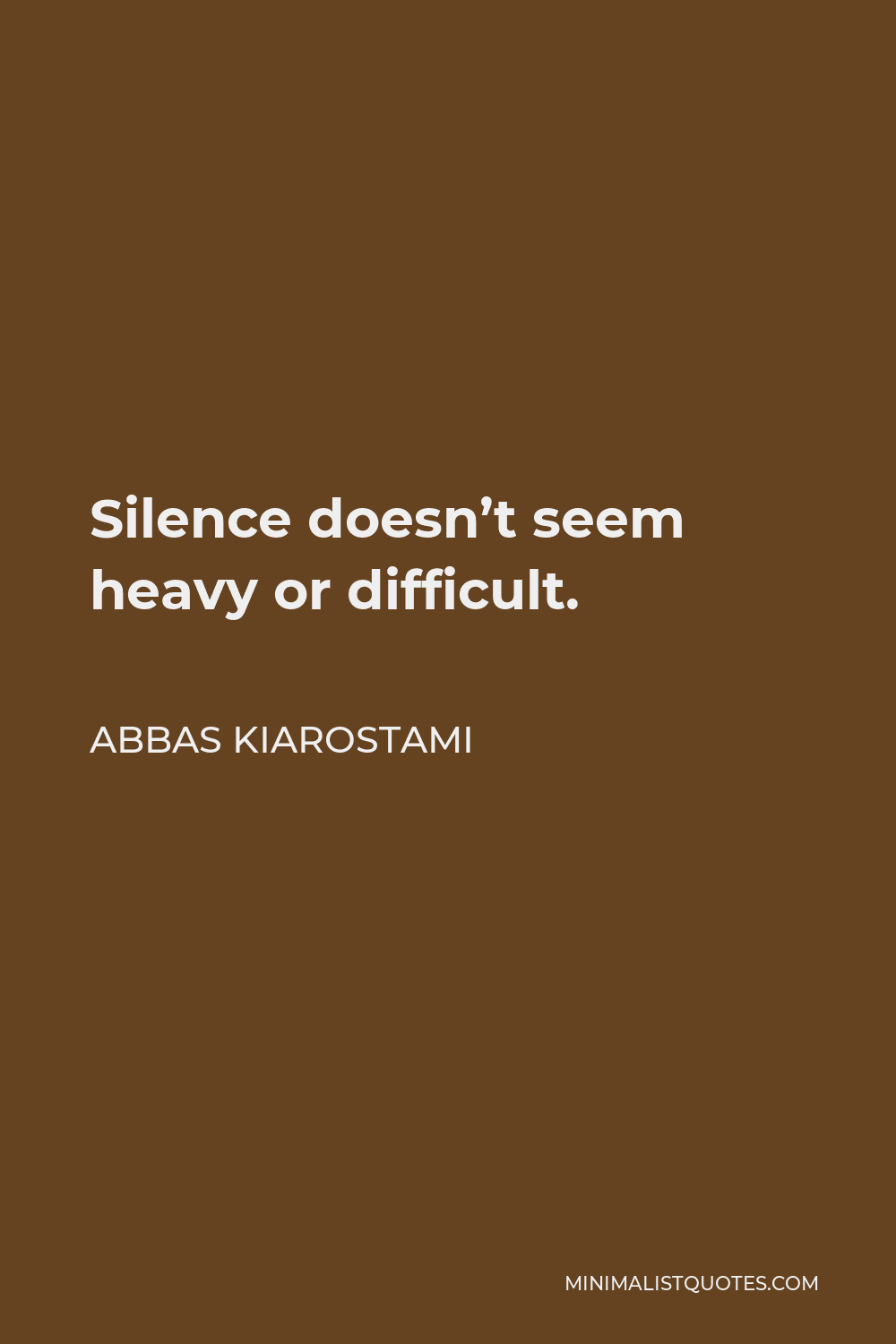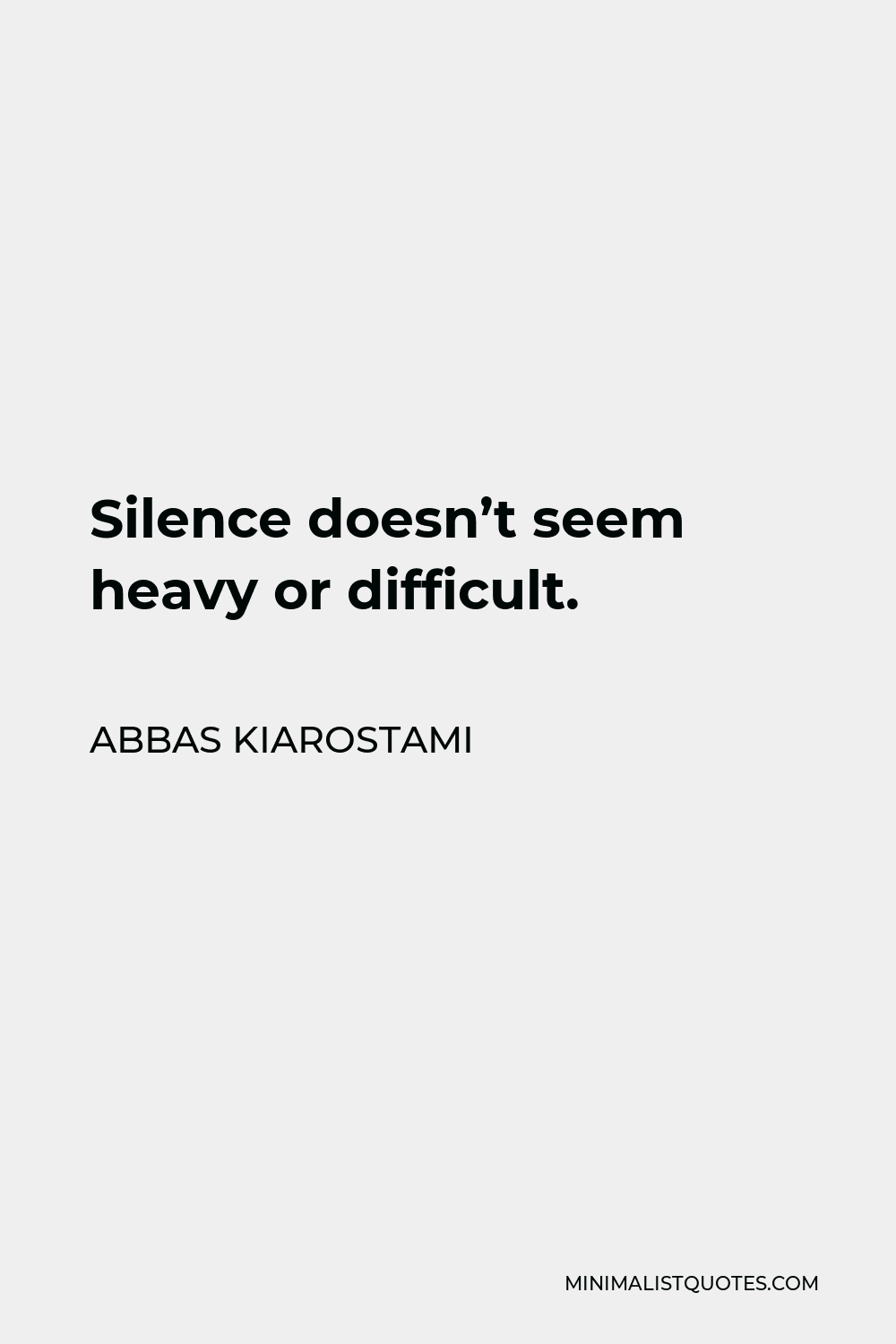We don’t look at each other [in the car], but instead do so only when we want to. We’re allowed to look around without appearing rude. We have a big screen in front of us and side views.
ABBAS KIAROSTAMISilence doesn’t seem heavy or difficult.
More Abbas Kiarostami Quotes
-





![Abbas Kiarostami Quote - We don’t look at each other [in the car], but instead do so only when we want to. We’re allowed to look around without appearing rude. We have a big screen in front of us and side views.](https://minimalistquotes.com/wp-content/uploads/2022/04/we-dont-look-at-each-other-in-the-car-but-instead--683x1024.jpg)

-





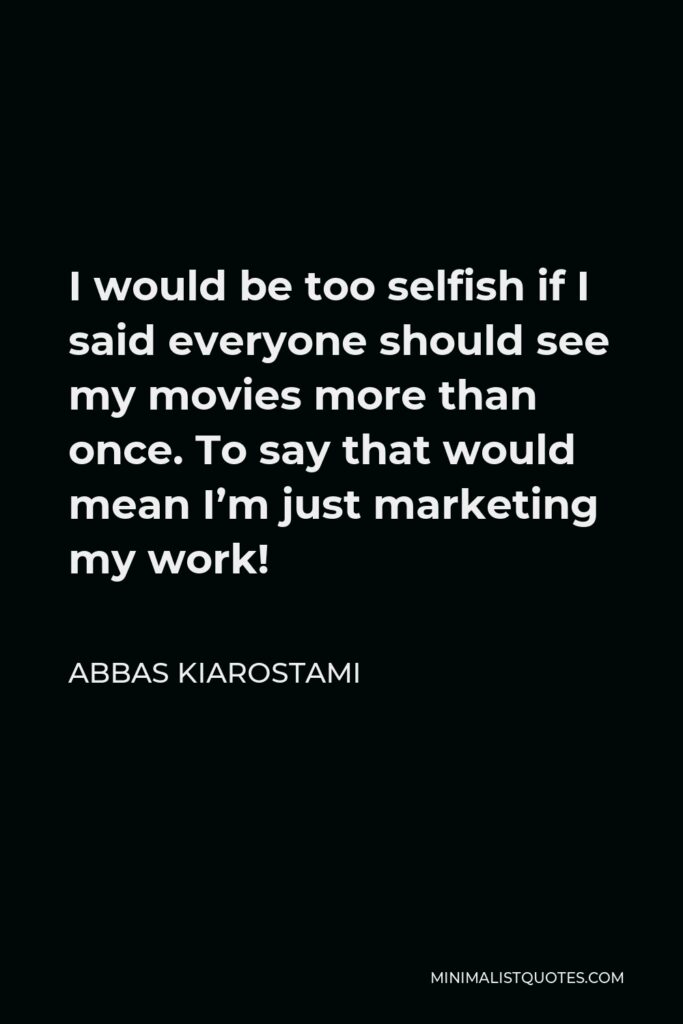

I would be too selfish if I said everyone should see my movies more than once. To say that would mean I’m just marketing my work!
ABBAS KIAROSTAMI -





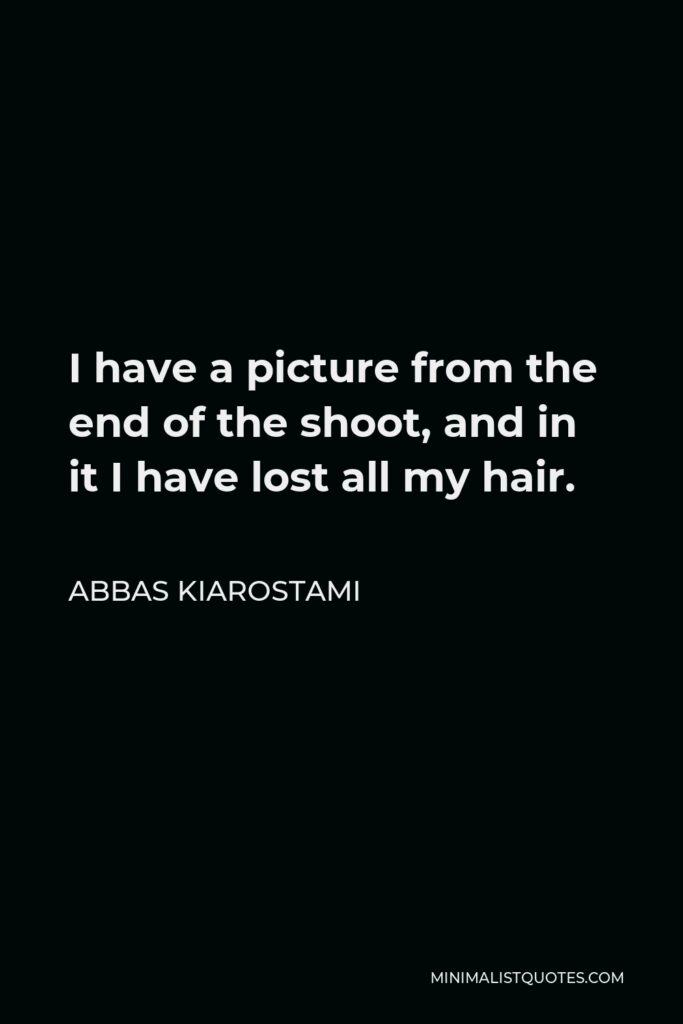

I have a picture from the end of the shoot, and in it I have lost all my hair.
ABBAS KIAROSTAMI -





![Abbas Kiarostami Quote - I am still very surprised that I managed to make that film [Close Up]. When I actually look back on that film, I really feel that I was not the director but instead just a member of the audience.](https://minimalistquotes.com/wp-content/uploads/2022/04/i-am-still-very-surprised-that-i-managed-to-make-t-683x1024.jpg)

I am still very surprised that I managed to make that film [Close Up]. When I actually look back on that film, I really feel that I was not the director but instead just a member of the audience.
ABBAS KIAROSTAMI -





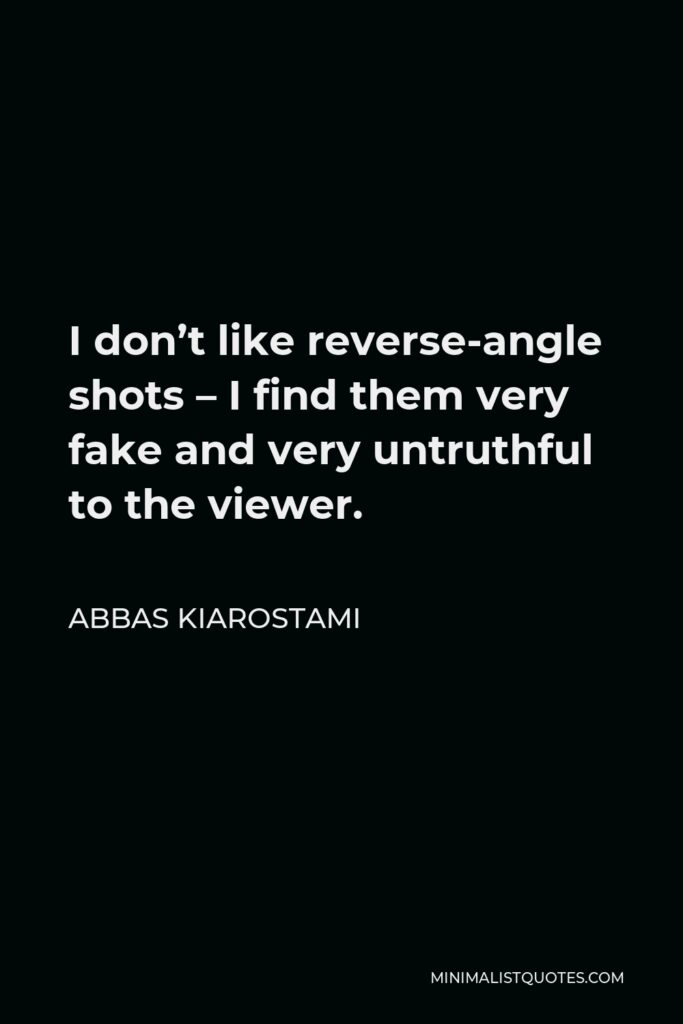

I don’t like reverse-angle shots – I find them very fake and very untruthful to the viewer.
ABBAS KIAROSTAMI -





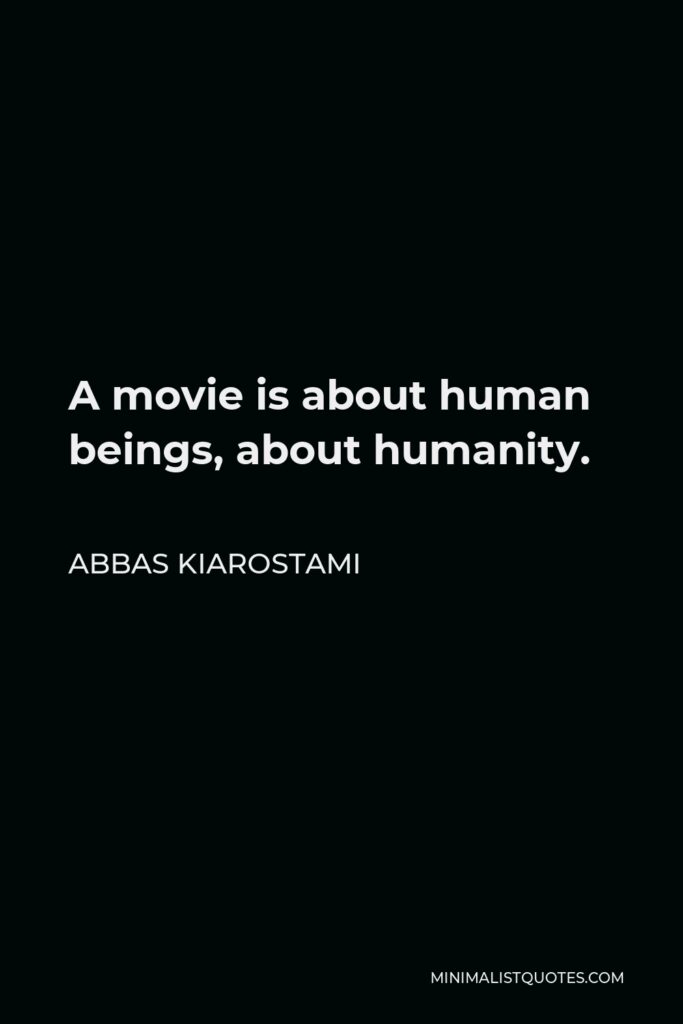

A movie is about human beings, about humanity.
ABBAS KIAROSTAMI -





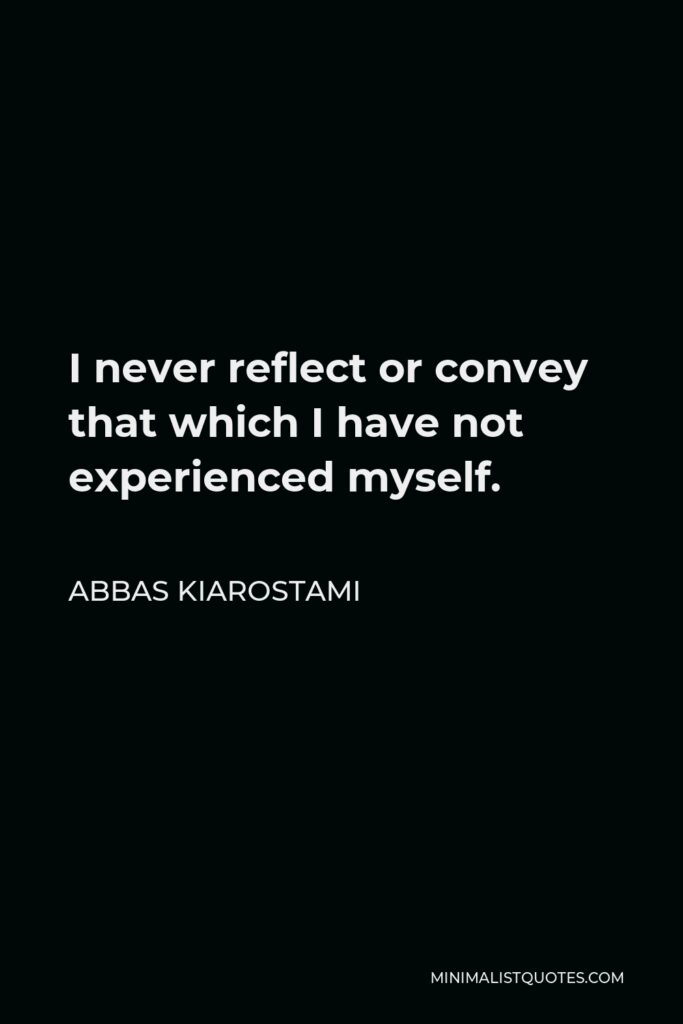

I never reflect or convey that which I have not experienced myself.
ABBAS KIAROSTAMI -





![Abbas Kiarostami Quote - I did not have a script [of Close Up]. I made notes in the evenings and we filmed during the day over 40 days.I didn’t sleep a wink for those 40 nights.](https://minimalistquotes.com/wp-content/uploads/2022/04/i-did-not-have-a-script-of-close-up-i-made-notes-i-683x1024.jpg)

I did not have a script [of Close Up]. I made notes in the evenings and we filmed during the day over 40 days.I didn’t sleep a wink for those 40 nights.
ABBAS KIAROSTAMI -





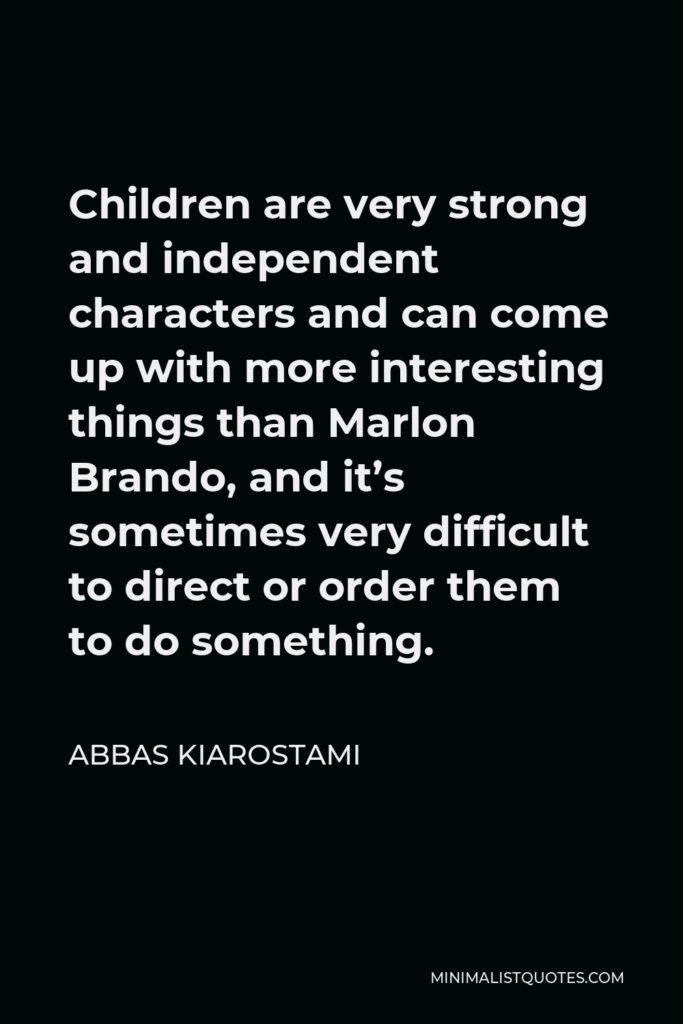

Children are very strong and independent characters and can come up with more interesting things than Marlon Brando, and it’s sometimes very difficult to direct or order them to do something.
ABBAS KIAROSTAMI -





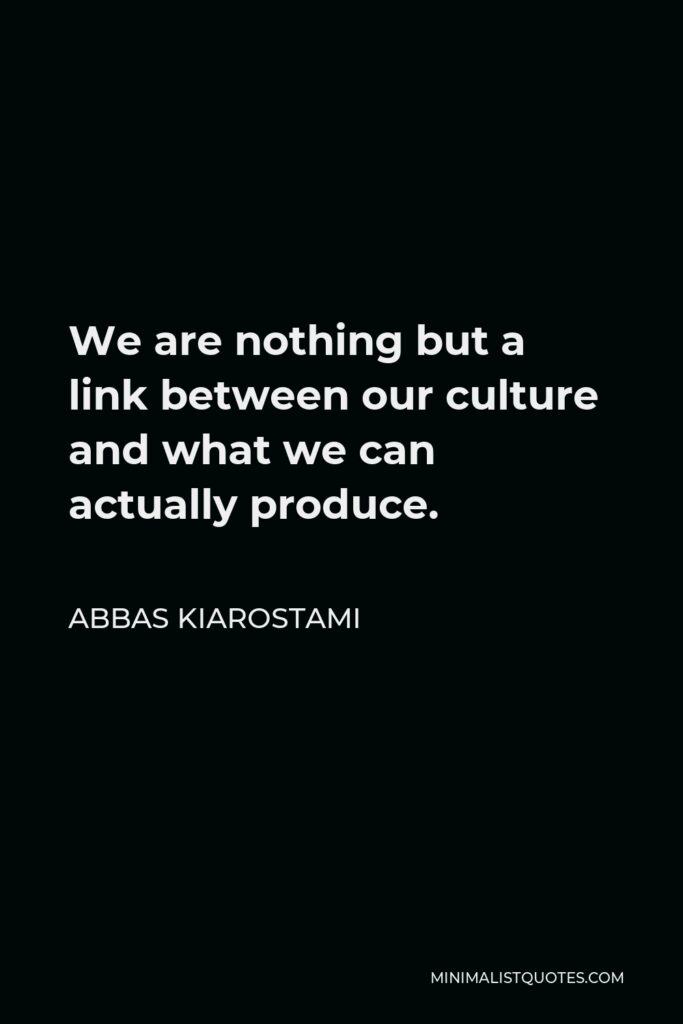

We are nothing but a link between our culture and what we can actually produce.
ABBAS KIAROSTAMI -





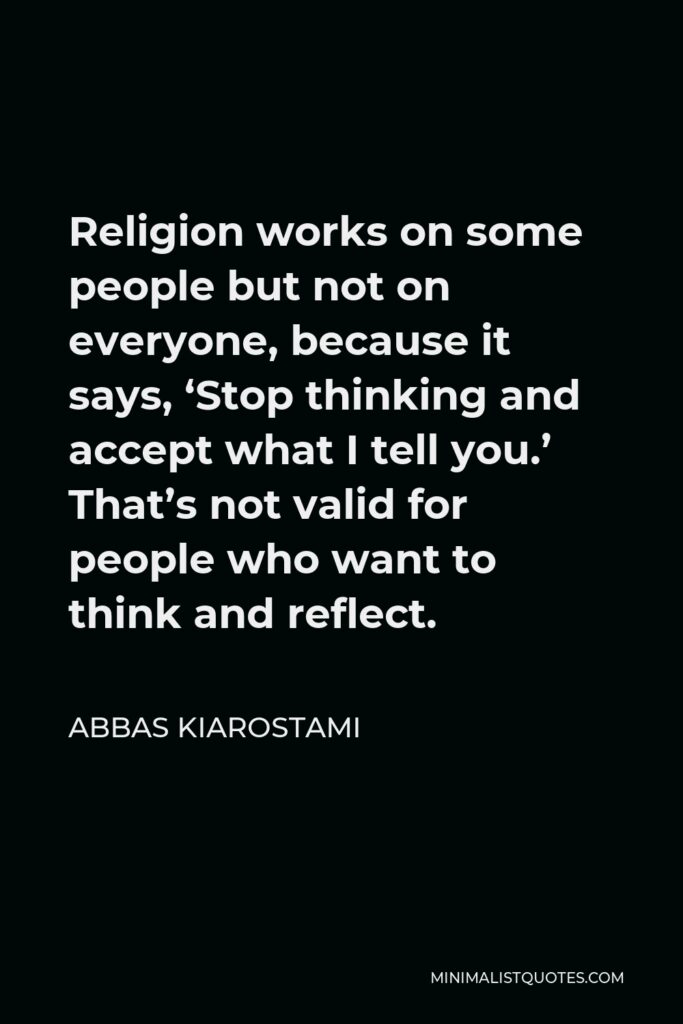

Religion works on some people but not on everyone, because it says, ‘Stop thinking and accept what I tell you.’ That’s not valid for people who want to think and reflect.
ABBAS KIAROSTAMI -





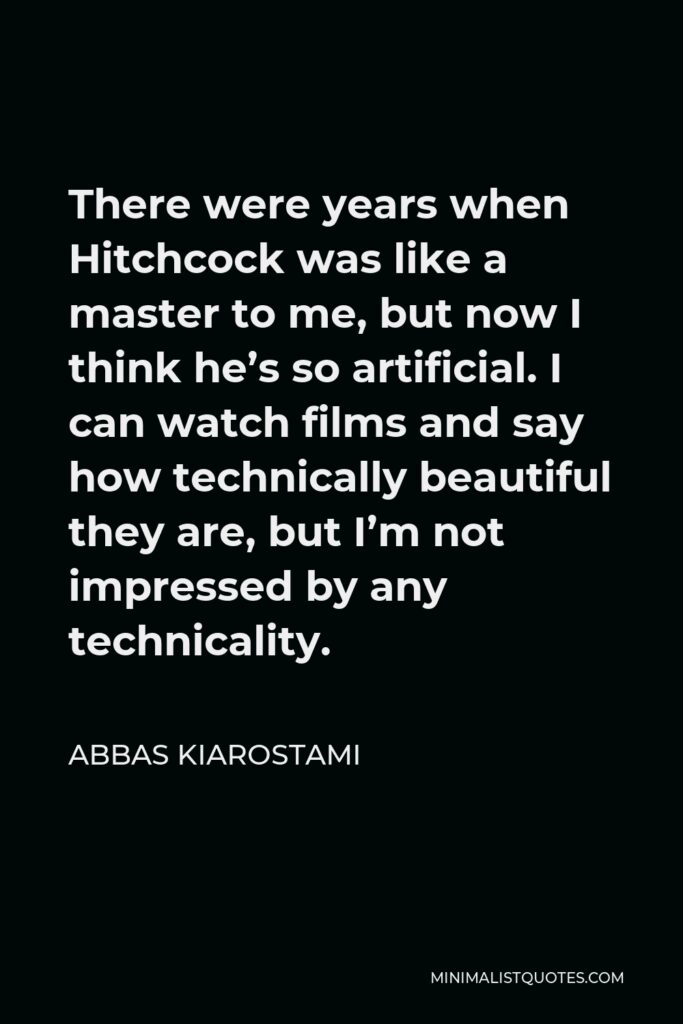

There were years when Hitchcock was like a master to me, but now I think he’s so artificial. I can watch films and say how technically beautiful they are, but I’m not impressed by any technicality.
ABBAS KIAROSTAMI -





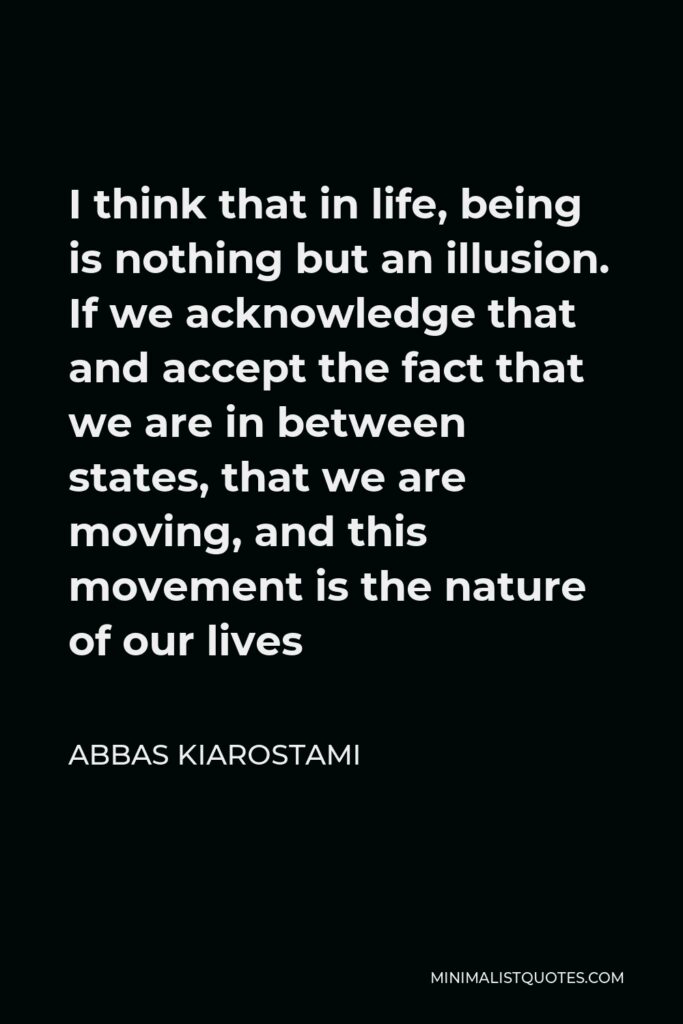

I think that in life, being is nothing but an illusion. If we acknowledge that and accept the fact that we are in between states, that we are moving, and this movement is the nature of our lives
ABBAS KIAROSTAMI -





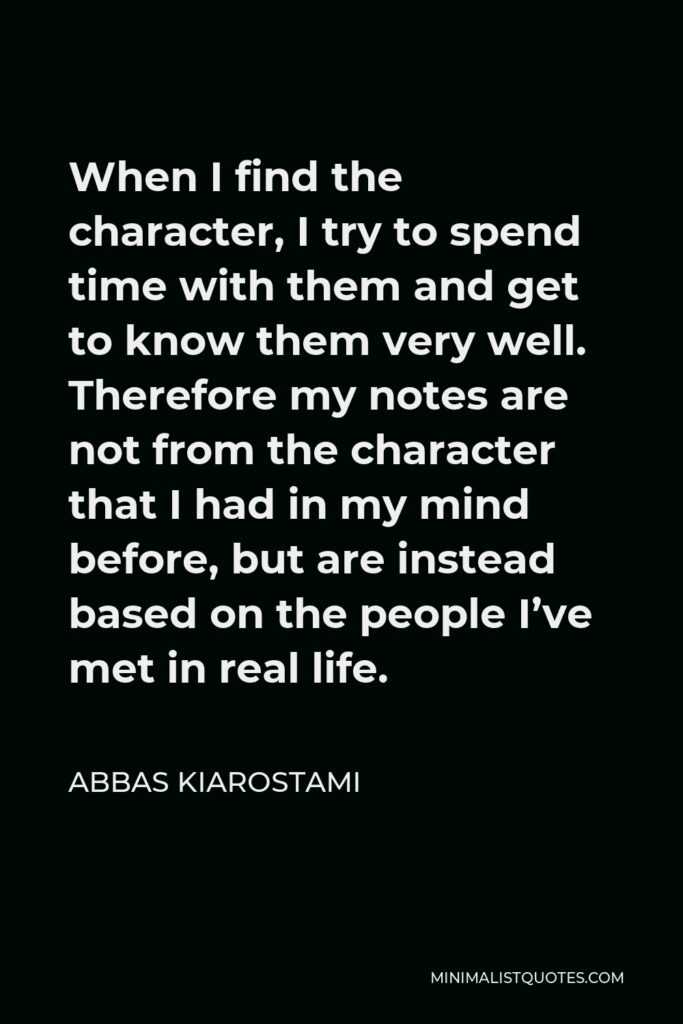

When I find the character, I try to spend time with them and get to know them very well. Therefore my notes are not from the character that I had in my mind before, but are instead based on the people I’ve met in real life.
ABBAS KIAROSTAMI -





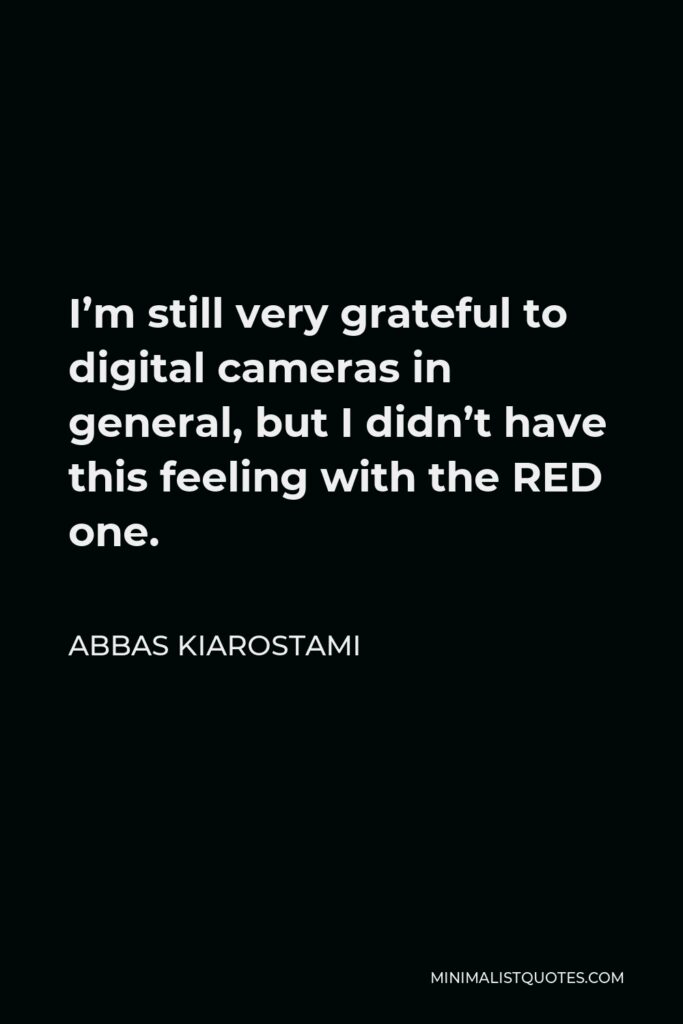

I’m still very grateful to digital cameras in general, but I didn’t have this feeling with the RED one.
ABBAS KIAROSTAMI -





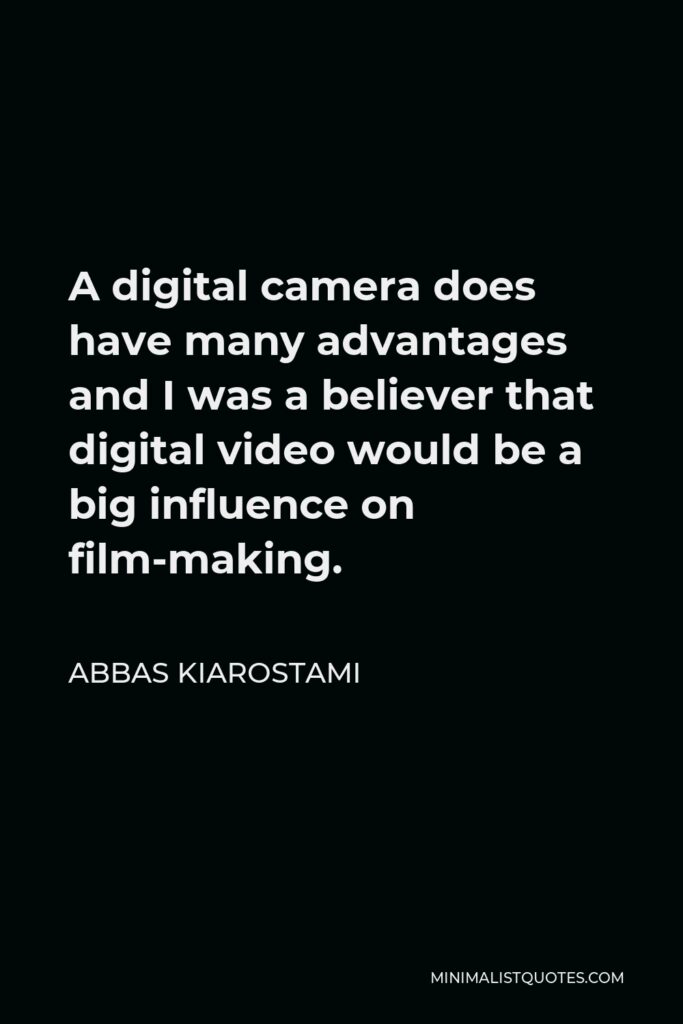

A digital camera does have many advantages and I was a believer that digital video would be a big influence on film-making.
ABBAS KIAROSTAMI

